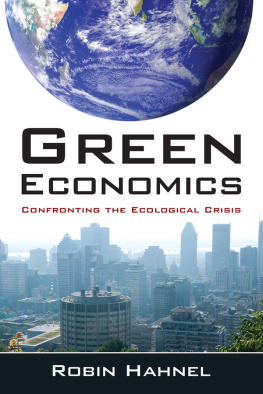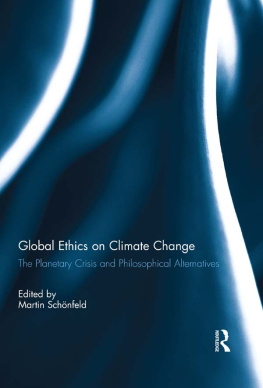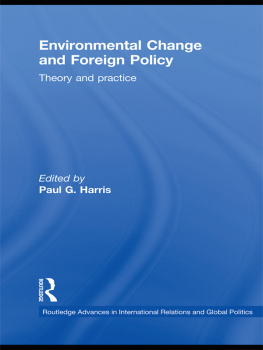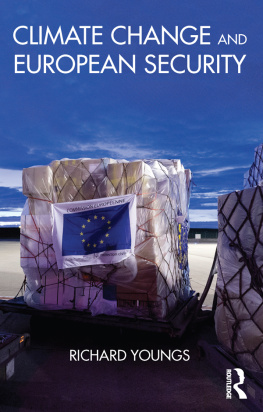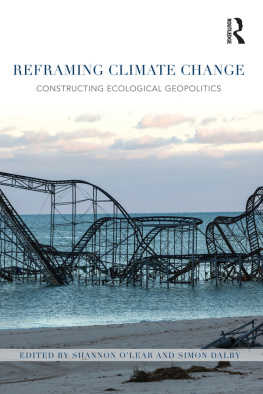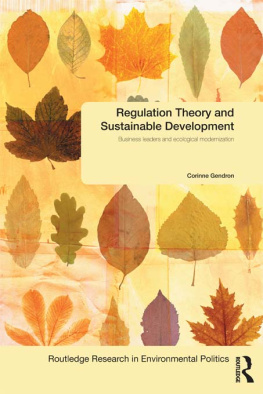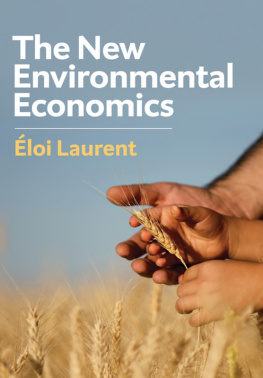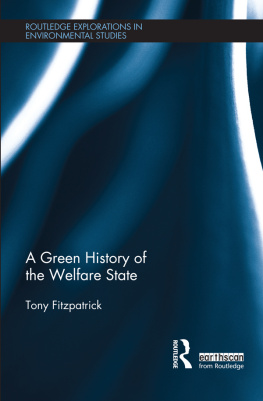Hahnel - Green Economics: Confronting the Ecological Crisis
Here you can read online Hahnel - Green Economics: Confronting the Ecological Crisis full text of the book (entire story) in english for free. Download pdf and epub, get meaning, cover and reviews about this ebook. City: Oxfordshire;England;New York, year: 2015, publisher: Taylor & Francis (CAM);Routledge, genre: Politics. Description of the work, (preface) as well as reviews are available. Best literature library LitArk.com created for fans of good reading and offers a wide selection of genres:
Romance novel
Science fiction
Adventure
Detective
Science
History
Home and family
Prose
Art
Politics
Computer
Non-fiction
Religion
Business
Children
Humor
Choose a favorite category and find really read worthwhile books. Enjoy immersion in the world of imagination, feel the emotions of the characters or learn something new for yourself, make an fascinating discovery.
Green Economics: Confronting the Ecological Crisis: summary, description and annotation
We offer to read an annotation, description, summary or preface (depends on what the author of the book "Green Economics: Confronting the Ecological Crisis" wrote himself). If you haven't found the necessary information about the book — write in the comments, we will try to find it.
Hahnel: author's other books
Who wrote Green Economics: Confronting the Ecological Crisis? Find out the surname, the name of the author of the book and a list of all author's works by series.
Green Economics: Confronting the Ecological Crisis — read online for free the complete book (whole text) full work
Below is the text of the book, divided by pages. System saving the place of the last page read, allows you to conveniently read the book "Green Economics: Confronting the Ecological Crisis" online for free, without having to search again every time where you left off. Put a bookmark, and you can go to the page where you finished reading at any time.
Font size:
Interval:
Bookmark:
GREEN
ECONOMICS
GREEN
ECONOMICS
CONFRONTING THE ECOLOGICAL CRISIS
ROBIN HAHNEL

First published 2011 by M.E. Sharpe
Published 2015 by Routledge
2 Park Square, Milton Park, Abingdon, Oxon OX14 4RN
711 Third Avenue, New York, NY 10017, USA
Routledge is an imprint of the Taylor & Francis Group, an informa business
Copyright 2011 Taylor & Francis. All rights reserved.
No part of this book may be reprinted or reproduced or utilised in any form or by any electronic, mechanical, or other means, now known or hereafter invented, including photocopying and recording, or in any information storage or retrieval system, without permission in writing from the publishers.
Notices
No responsibility is assumed by the publisher for any injury and/or damage to persons or property as a matter of products liability, negligence or otherwise, or from any use of operation of any methods, products, instructions or ideas contained in the material herein.
Practitioners and researchers must always rely on their own experience and knowledge in evaluating and using any information, methods, compounds, or experiments described herein. In using such information or methods they should be mindful of their own safety and the safety of others, including parties for whom they have a professional responsibility.
Product or corporate names may be trademarks or registered trademarks, and are used only for identification and explanation without intent to infringe.
Library of Congress Cataloging-in-Publication Data
Hahnel, Robin.
Green economics : confronting the ecological crisis/Robin Hahnel.
p. cm.
Includes bibliographical references and index.
ISBN 978-0-7656-2795-7 (cloth : alk. paper)ISBN 978-0-7656-2796-4 (pbk. : alk. paper)
1. Environmental economics. 2. Sustainable living. I. Title.
| HC79.E5H3165 2011 | |
| 333.7dc22 | 2010027020 |
ISBN: 9780765627964 (pbk)
ISBN: 9780765627957 (hbk)
This book is dedicated to Kristen Sheeran, who gave up tenure at the University of Maryland to become Executive Director of Economics for Equity and the Environment because she knew the ecological crisis we face must be confronted more quickly than wheels turn in ivory towers.
This book is written in desperation. The human species has launched the planet on a trajectory that threatens to make all previous environmental disasters pale by comparison. Despite the fact that more and more people do get it, our leaders, and the current political and economic systems we labor under, have proved unable to make any progress whatsoever toward heading off climate change disaster.
The much-anticipated climate meetings in Copenhagen in December 2009 ended in disaster, threatening to undo diplomatic progress that had consumed decades of precious time. And as Bill McKibben, cofounder of the campaign to stabilize atmospheric concentrations of greenhouse gases at 350 parts per million, recently lamented, after the planet has just come through the warmest decade, the warmest 12 months, the warmest six months, and the warmest April, May, and June on record in late July, the U.S. Senate decided to do exactly nothing about climate change. They didnt do less than they could havethey did nothing, preserving a perfect two-decade bipartisan record of no action (TomDispatch.com, August 4, 2010).
This book is not written because the author thinks he has all the answers we need. Quite the contrary, I believe it may be some time before anyone provides a grand theoretical synthesis suitable to analyzing all facets of the relationship between human economic activity and the natural environment. While we can build from insights provided by various heterodox approaches as well as by mainstream economics, unfortunately all schools of economic thought fall short of what is needed in one way or another. And while the efforts of those who advocate on behalf of the environment have often been inspirational and heroic, unless political strategies improve there is little reason to expect the environmental movement to achieve better results in the future.
After acknowledging pioneering work by environmental, ecological, institutional, Marxist, and other economists, it may appear unseemly to proceed to criticize them. But improvements will not come without criticism, which should not be confused with pointing the finger of blame at those we owe a debt of gratitude for all they have done. Those who study and work to protect the environment are not the reason the environment is in serious danger, even if better analyses and more effective political strategies will be required to better protect the environment.
I want to thank all the students in my environmental economics classes over the past decades at American University, Lewis and Clark College, and Portland State University who worked with me to separate the wheat from the chaff in received wisdom. I thank my editors at M.E. SharpeLynn Taylor, who rescued this project when it was all but lost, and Henrietta Toth and Laurie Lieb, who labored mightily to make the book more readable. But mostly I thank Kristen Sheeran for teaching a long-time radical economist that he needed to take environmental issues more seriously.
As much as I owe to these and others, the views expressed here are entirely my own responsibility.
Green Economics: Confronting the Ecological Crisis is an attempt to provide environmentalists and progressives with the kind of economics that suits their needs today. It is written by a professional economist who has taught environmental economics, mainstream economic theory, radical political economy, institutional economics, and post-Keynesian economics at the graduate and undergraduate levels for more than thirty-five years in one of the few economics departments in the United States with a PhD program that features heterodox as well as mainstream schools of thought. The author of Green Economics has also worked as an activist in a variety of progressive and environmental campaigns and organizations for more than forty-five years. He understands why activists mistrust economists, yet desperately need helpful economic analysis.
Unfortunately, there is no grand synthesis for analyzing economics and the environment. There are useful insights from mainstream economics when its theories are properly interpreted, and ecological economics and several other heterodox schools of economic thought provide important ideas as well. However, every theoretical framework for analyzing the relations between our economic activities and the natural environment remains incomplete and flawed. As a result, there is no single place to turn for someone seeking to understand what is necessary to protect the environment in ways that are effective and fair. Green Economics does not pretend to provide the grand synthesis that, unfortunately, still lies beyond our reach. However, those who struggle to protect the environment can ill afford to wait for a grand synthesis. Green Economics gathers together useful insights available from many sources and dispels debilitating myths independent of origin. The three brief sections that follow in this introduction offer a glimpse of where mainstream economics can be helpful, where mainstream economics can be misleading, and where heterodox ideas can provide important insights but also create unnecessary confusion.
Americans had put a price on carbon? Of course, nobody understood 250 years ago that carbon emissions from burning fossil fuels were going to destabilize the earths carbon cycle and that increasing concentrations of greenhouse gases in the atmosphere would threaten to unleash cataclysmic changes in the earths climate systems by the end of the twenty-first century. But now, with the benefit of hindsight, we do know that we should have imposed a tax on carbon emissions as far back as colonial days when the market system was just getting up a head of steam in the New World. One place mainstream economics can be useful is helping us understand how much damage getting an important price wrong can cause in a market economy.
Next pageFont size:
Interval:
Bookmark:
Similar books «Green Economics: Confronting the Ecological Crisis»
Look at similar books to Green Economics: Confronting the Ecological Crisis. We have selected literature similar in name and meaning in the hope of providing readers with more options to find new, interesting, not yet read works.
Discussion, reviews of the book Green Economics: Confronting the Ecological Crisis and just readers' own opinions. Leave your comments, write what you think about the work, its meaning or the main characters. Specify what exactly you liked and what you didn't like, and why you think so.

